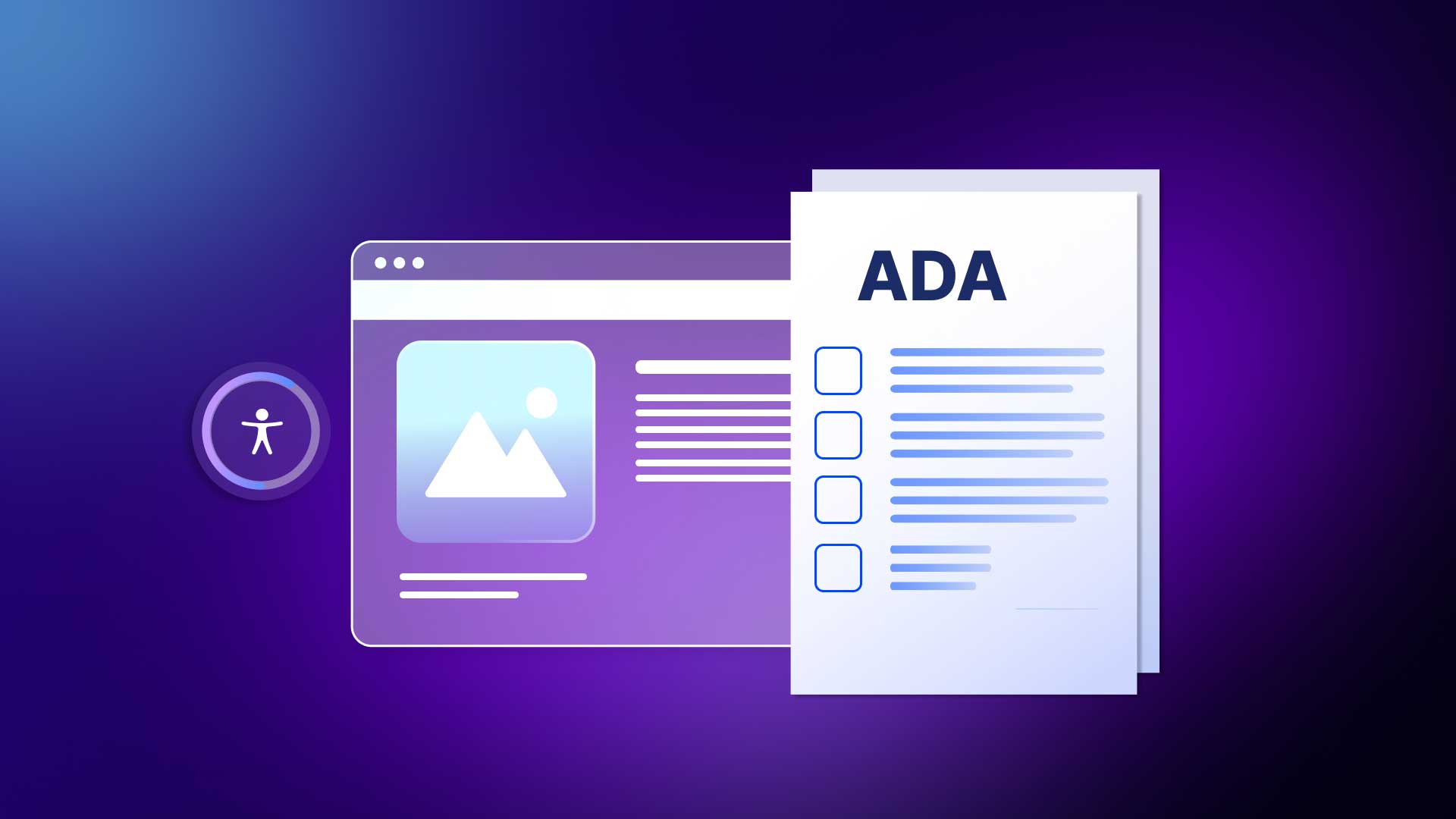Understanding ADA Compliance for Online Stores in 2025
In today's digital age, the importance of accessibility cannot be overstated. With more consumers turning to online shopping, ensuring that your e-commerce platform is accessible to all individuals, including those with disabilities, has become essential. Not only is this a moral obligation but also a legal requirement under the Americans with Disabilities Act (ADA). Failure to comply with ADA standards can result in significant legal challenges, costly fines, and damage to your brand's reputation.
At Legal Marketplace CONSULTANT, we understand the complexities surrounding ADA compliance and the implications it holds for online businesses. Our mission is to assist companies in navigating these regulations, providing thorough accessibility audits, devising effective compliance strategies based on the Web Content Accessibility Guidelines (WCAG), and safeguarding your e-commerce platform from potential litigation.
What is ADA and Why Does It Matter for Online Stores?
The Americans with Disabilities Act (ADA) was enacted to prohibit discrimination against individuals with disabilities in all areas of public life, including employment, transportation, and public accommodations. While originally focused on physical spaces, courts have expanded its application to digital environments such as websites and mobile applications.
For online retailers, this means that your website and mobile app must be designed and maintained in a way that is accessible to users with disabilities. These disabilities could be visual, auditory, motor, or cognitive. Accessibility ensures that everyone, regardless of ability, can navigate, understand, and complete transactions on your platform effectively.
Legal Risks of Non-Compliance
Non-compliance with ADA accessibility standards poses significant risks including legal action. Lawsuits have skyrocketed in recent years as more individuals and advocacy groups recognize the importance of equitable access.
The consequences of ADA violations include:
- Costly fines and penalties that can amount to thousands or even millions of dollars;
- Court orders mandating swift and often expensive website modifications;
- Negative publicity and damage to your brand’s reputation;
- Loss of customers who require accessible online shopping experiences;
- Increased operational costs due to emergency remediation efforts instead of planned accessibility enhancements.
Key Accessibility Standards: WCAG Explained
The accepted benchmark for digital accessibility is the Web Content Accessibility Guidelines (WCAG). These guidelines provide a comprehensive framework for making digital content more accessible to a wide range of users. WCAG is organized around four core principles, often abbreviated as POUR:
- Perceivable: Information and user interface components must be presentable to users in ways they can perceive. For example, providing text alternatives for non-text content.
- Operable: User interface components and navigation must be operable. For instance, all functionality should be available from a keyboard.
- Understandable: Information and operation of the user interface must be understandable. This includes making text readable and predictable.
- Robust: Content must be robust enough to be interpreted reliably by a wide variety of user agents, including assistive technologies.
By adhering to the latest version of the WCAG, specifically WCAG 2.1 and beyond, businesses can ensure that their digital assets comply with ADA requirements and serve all customers effectively.
Common Accessibility Issues in Online Stores
Many online stores inadvertently include accessibility barriers. Some frequent issues include:
- Poorly labeled images and buttons that screen readers cannot interpret;
- Navigation that is not keyboard-friendly;
- Insufficient color contrast making text unreadable for users with visual impairments;
- Lack of captions or transcripts for multimedia content;
- Forms with inaccessible labels or error messages;
- Complex layouts that confuse users with cognitive disabilities.
How Legal Marketplace CONSULTANT Can Help
Our legal team specializes in digital accessibility and ADA compliance specifically tailored for e-commerce. Here is how we assist your business:
- Conduct comprehensive accessibility audits to identify existing compliance gaps;
- Develop strategic plans aligned with WCAG standards to guide remediation efforts;
- Provide legal consultation to understand current ADA obligations and emerging regulations;
- Assist in implementing accessibility features and testing for usability with assistive technologies;
- Offer ongoing monitoring and maintenance support to ensure continued adherence;
- Represent clients and mediate in case of potential disputes to avoid costly litigation.
By working proactively with us, your business can reduce risks and create an inclusive, welcoming digital environment for all customers.
Steps to Achieve and Maintain ADA Compliance
Achieving ADA compliance is not a one-time task but an ongoing commitment. We recommend the following steps for online retailers:
- Perform a full accessibility audit using both automated tools and human evaluation;
- Identify and prioritize issues based on severity and impact on user experience;
- Develop a remediation plan with clear timelines and responsible parties;
- Train development and content teams on accessibility best practices;
- Implement corrective actions including code updates, design changes, and content revisions;
- Test updated elements rigorously with assistive technologies like screen readers and keyboard navigation;
- Establish ongoing monitoring to detect and address new accessibility challenges as your platform evolves;
- Keep abreast of changes in ADA regulations and WCAG guidelines to maintain up-to-date compliance.
Best Practices for Inclusive E-Commerce Design
Creating an accessible online store goes beyond legal compliance—it enhances user experience for all visitors and may increase conversion rates. Here are several best practices:
- Use clear, simple language and instructions to accommodate users with cognitive disabilities;
- Ensure consistent navigation across all pages for ease of use;
- Implement scalable fonts and adjustable color contrasts for user customization;
- Provide multiple ways to contact customer support, including text chat and voice services;
- Include keyboard shortcuts and focus indicators to aid keyboard-only users;
- Regularly test your site with real users with disabilities to gather feedback and iterate improvements.
The Financial and Social Benefits of Accessibility
Beyond avoiding legal penalties, ADA compliance offers tangible benefits:
- Expands your market reach by engaging customers with disabilities, a significant demographic;
- Improves search engine optimization (SEO) by adhering to best web practices;
- Strengthens brand loyalty and enhances corporate social responsibility image;
- Reduces bounce rates as users find your interface easier to use and navigate;
- Encourages innovation in design and development that benefits all users.
Preparing for Future Accessibility Legislation
The landscape of digital accessibility laws is evolving rapidly. Several states and countries are introducing stricter regulations, and courts continue to interpret ADA in new ways. Online businesses must anticipate these changes by maintaining a proactive approach.
Legal Marketplace CONSULTANT stays ahead of these developments to ensure your e-commerce platform not only complies with current standards but is also prepared for upcoming legislative trends, such as increased requirements under Section 508 and international accessibility mandates.
Client Success Stories
Many clients have benefited from partnering with Legal Marketplace CONSULTANT. For example, an online apparel retailer facing multiple ADA lawsuits engaged our services. Through a detailed audit and remediation plan, we helped them implement accessibility features that resolved legal issues and enhanced user engagement, leading to a 15% increase in sales within six months.
Another client, a large electronics e-commerce platform, integrated our WCAG-based strategies and avoided numerous legal pitfalls while promoting an inclusive shopping experience that boosted brand reputation significantly.
Why Choose Legal Marketplace CONSULTANT?
- Expertise in ADA compliance tailored specifically for online retail;
- Comprehensive services ranging from audits to legal defense;
- Proven track record of helping clients avoid litigation and penalties;
- Dedicated team of legal and accessibility professionals committed to client success;
- Continual updates and training to keep you informed on evolving regulations;
- Personalized approach that aligns accessibility with your business goals.
Getting Started With Your ADA Compliance Journey
Don’t wait until a lawsuit threatens your e-commerce business. Early action is the best protection against costly legal consequences. Here’s how to begin:
- Contact Legal Marketplace CONSULTANT for a consultation and preliminary assessment;
- Schedule a full accessibility audit to uncover compliance gaps;
- Develop a tailored compliance strategy that fits your budget and timeline;
- Implement necessary changes with expert guidance and quality assurance;
- Train your team to sustain ongoing accessibility practices;
- Maintain an open dialogue with our legal experts for updates on regulations and best practices.
Ensuring ADA compliance for your online store is more than a legal requirement—it is an opportunity to create an inclusive, user-friendly digital environment that welcomes every customer. At Legal Marketplace CONSULTANT, we provide the expertise, strategies, and support you need to navigate accessibility laws confidently, avoid litigation, and build lasting customer trust.
In 2025 and beyond, accessibility remains a critical aspect of e-commerce success. Protect your brand, enhance user experience, and embrace inclusivity by partnering with us today.
Legal Marketplace CONSULTANT is a dedicated legal firm specializing in comprehensive ADA compliance and digital accessibility consultation for businesses. Our experienced team of attorneys and accessibility experts works collaboratively to ensure your online platforms meet legal standards and foster inclusive experiences for all users.































